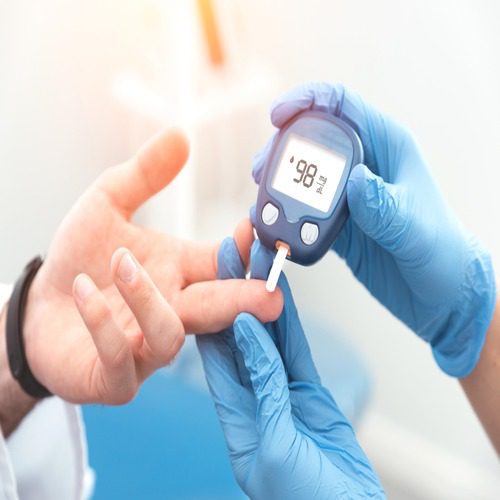Cystitis in Men : What Is It and Who Can Get It?
Cystitis is a common urinary tract infection (UTI) that primarily affects women, but it can also occur in men. Although …
Read More

Diabetes, a chronic and complex health condition that affects millions of individuals worldwide, is a pressing public health concern that cannot be ignored. Its prevalence is escalating alarmingly, with the World Health Organization predicting diabetes will become the seventh leading cause of death by 2030. This in-depth article seeks to demystify diabetes, providing a comprehensive guide to its different types, causes, symptoms, management strategies, potential complications, and ongoing research in the field.
the way our bodies use digested food for growth and energy. It is characterized by elevated blood sugar levels over a prolonged period. This is due to the body’s inability to produce and use insulin, a hormone that regulates glucose in the bloodstream. The pancreas, an organ situated behind the stomach, produces insulin and releases it into the bloodstream. Insulin enables cells to absorb glucose and convert it into energy, which is critical for bodily functions. Without sufficient insulin, the body cannot properly utilize glucose from food, leading to high blood sugar levels, known as hyperglycemia.
To understand diabetes and its implications better, it’s essential to understand its various types and causes. There are three types of diabetes: Type 1, Type 2, and gestational diabetes.
often diagnosed during childhood or adolescence but can occur at any age, is an autoimmune condition. It happens when the body’s immune system mistakenly attacks and destroys insulin-producing beta cells in the pancreas. This autoimmune response results in the body not producing insulin. The exact cause of this immune malfunction remains unclear, but scientists believe genetic factors and environmental triggers may play a role in Type 1 diabetes. Individuals with Type 1 diabetes must take insulin injections or use an insulin pump daily to manage their blood sugar levels.
the most prevalent form, is associated with lifestyle factors such as obesity, physical inactivity, and an unhealthy diet. It occurs when the body becomes resistant to insulin effects or when the pancreas cannot produce enough insulin to maintain normal blood glucose levels. Unlike Type 1 diabetes, Type 2 disorder onset is often gradual, which makes early detection more challenging. However, with regular screening, especially for individuals with risk factors, Type 2 diabetes can be diagnosed and managed.
Gestational diabetes affects pregnant women, typically around the 24th week of pregnancy. It can occur when hormonal changes during pregnancy make the body more resistant to insulin. While gestational This disorder typically resolves after childbirth, it significantly increases the risk of Type 2 diabetes later in life. It can also lead to potential health risks for the baby.
Understanding diabetes symptoms is another critical step in diabetes management. Common symptoms include excessive thirst and hunger, frequent urination, unexplained weight loss, fatigue, blurred vision, and slow-healing wounds or sores. Some individuals may also experience irritability, frequent infections, and tingling or numbness in the hands or feet. If you notice any of these symptoms, seek immediate medical attention to prevent severe complications.
it’s essential to understand how to manage the condition effectively. Although a lifelong condition, diabetes can be controlled effectively with lifestyle changes, medication, and regular monitoring.
For individuals with Type 1 diabetes, daily insulin injections or insulin pump therapy are typically required. These treatments replace or supplement the insulin the body can’t produce. Regular blood sugar monitoring is also necessary to ensure insulin doses are appropriately adjusted according to food intake and physical activity. Times Pharmacy has all the medication and we deliver them to your doorstep.
For those diagnosed with Type 2 diabetes, management usually begins with lifestyle modifications. These include a healthy diet rich in whole grains, fruits, vegetables, lean proteins, and low-fat dairy products. Regular physical activity is also crucial as it helps the body use insulin more efficiently, lowering blood glucose levels. If blood sugar levels remain high despite lifestyle changes, oral medications or insulin therapy may be prescribed. These medications work in various ways, including increasing insulin production, reducing glucose production and absorption, and improving insulin sensitivity.Times Pharmacy has all the medication and we deliver them to your doorstep.
For women diagnosed with gestational diabetes, management focuses on maintaining normal blood glucose levels during pregnancy to ensure mother and baby’s health. This usually involves dietary changes and regular physical activity. In some cases, insulin injections may be necessary. It’s also crucial for women with gestational diabetes to have regular check-ups post-pregnancy as they have a higher risk of developing Type 2 diabetes.
This includes understanding how to monitor blood sugar levels, recognizing the symptoms of hyperglycemia and hypoglycemia. It also includes understanding how different foods and exercises affect blood sugar levels, and knowing how to administer medications properly. Regular check-ups with healthcare professionals are also vital to monitor progress, adjust treatment plans as necessary, and manage any potential complications.
Importantly, living with This disordercan also have psychological impacts, leading to diabetes distress, depression, and anxiety. It’s crucial to address these issues as they can make diabetes management harder. Support from healthcare professionals, family, friends, and support groups can be beneficial.
The final part of our comprehensive guide to diabetes is an understanding of potential complications. Long-term diabetes complications affect almost every organ system in the body, including the cardiovascular system, kidneys, eyes, and nerves.
Heart disease and stroke are significantly more common in diabetes patients due to high blood sugar levels damaging blood vessels. Maintaining blood pressure and cholesterol in a healthy range is crucial to preventing these complications.
This disorder can also cause kidney damage (diabetic nephropathy), leading to kidney failure or irreversible end-stage kidney disease requiring dialysis or a kidney transplant. Regular urine and blood tests can detect kidney damage early and prevent progression.
Eye complications include diabetic retinopathy, which can lead to blindness, cataracts, and glaucoma. Regular eye check-ups can detect these conditions early and prevent vision loss.
Nerve damage (diabetic neuropathy) can cause tingling, pain, or numbness in the hands and feet, and in severe cases, can lead to limb amputations due to severe infections. Proper foot care can prevent these complications.

ongoing research in This disorder offers hope for better management strategies, treatments, and possibly a cure in the future. Various studies are being conducted on genetics’ role in this disorder. These studies include the use of stem cells for insulin production, the development of an artificial pancreas, and vaccines for Type 1 diabetes.
This disorder is a complicated condition, but it is not unfavorable. With early identification of side effects, people can move toward managing their disorder more effectively. Way of life changes, such as taking on a solid eating regimen and participating in regular exercise, play an important role in controlling glucose levels. This diminishes the risk of complications associated with diabetes.
Also, regular monitoring of blood glucose levels permits people to remain mindful of their condition and make fundamental adjustments to their treatment plan. Opportune clinical interventions, including meds and insulin treatment, can be instrumental in overseeing diabetes and forestalling its development.
Living with diabetes runs past simple endurance; it is tied to maintaining a solid and satisfying life. By understanding their bodies and assuming responsibility for their well-being, people can make informed choices and effectively manage their diabetes. This includes instructing themselves about the condition, looking for help from medical services experts, and interfacing with help gatherings or networks of people experiencing the same difficulties.
While This disorder might introduce its fair share of difficulties, with the right information, care, and proactive methodology, people with diabetes can successfully manage and overcome this condition. Through dedication and diligence, they can conquer obstacles, maintain healthy glucose levels, and prepare for complex situations. By embracing a positive mentality and making important lifestyle changes, people with diabetes can lead a lively and satisfying life, overcoming the condition and achieving general prosperity. Times Pharmacy has all the medication and we deliver them to your doorstep.
“Always polite and delivers medication on time. Absolutely love the service they provide and great staff. Keep up the good work ????”
“A fantastic pharmacy. Efficient, helpful staff who deliver within a few hours of prescription being prescribed or less. Absolutely amazing service.”
“Can highly recommend this service, the delivery is so speedy and always reliable, delivered by hand to the door, just amazing, thank you.”
Cystitis is a common urinary tract infection (UTI) that primarily affects women, but it can also occur in men. Although …
Read MoreIntroduction: Unveiling the Mysteries of Soma Soma medication, also known as carisoprodol, is a muscle relaxant commonly prescribed to alleviate …
Read MoreUnderstanding Ramipril and Its Role in Health Ramipril, a medication commonly prescribed for high blood pressure and heart failure, belongs …
Read MoreClick one of our contacts below to chat on WhatsApp